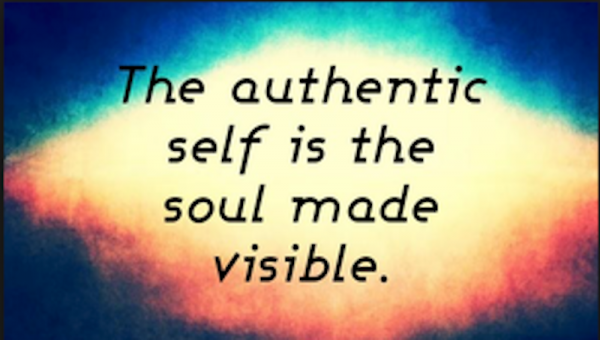Okay, El Freaking Niño. Time to pack up your toys and go home. We’re still being ravaged by isolated t-storms, and the rivers and bayous haven’t even crested yet. My little village within Houston (Hedwig Village–all one square mile of it) is under a constant flood warning. This has sure been a weird year, meteorologically! My grand daughter’s birthday is tomorrow and she’s having a pool party at my place. Pray for sun. On a side note, I bought her a Slip-and-Slide, one where there are shark jaws opening and closing at the end. It seems like for the last 28 years I’ve bought one of these suckers every summer. My husband hates them because he doesn’t want to store them anywhere and leaving it outside makes the grass underneath turn yellow. He’s going to love watching Arleen open that present!
I have a couple of favors to ask you guys. First, can you be sure to share these posts on your Facebook timeline when you think they might help others? Second, be sure you click on “Share Your Praise” on the right to tell the world how Erik and Channeling Erik has helped you. We just sent out the press kits to media, and they will undoubtedly be pouring over the blog. I want them to see how important Channeling Erik is to all of us, and I sure don’t want the story count to be zero! Thanks! Now it’s Billy Time.
Me: Your play, Hamlet, it’s a tragedy where someone loses someone such that they can’t go on. Was Hamlet you when you experienced the loss of Hamnet?
Shakespeare: This person [asking the question] is validating what I just said. She knows a great deal about me. That’s an example of how I indirectly connected to the loss of my son.
Me: What advice do you have for those who lose someone and they “revisit” you in life like Hamlet’s father came back to Hamlet? And did that happen to you? Did your son revisit you after he died?
Shakespeare: I compartmentalized things. That’s how I dealt with the loss. But in the weeks after, I was crying. It wasn’t conscious. It was unconscious like my spirit was crying out. That’s when I was visited. It was in the most intense period of my grief. Throughout the remainder of my life, he would come back in forms that I didn’t necessarily realize was him. Once I was walking down the road, and there was a stream off to my right. I wanted to sit next to the stream for personal meditation, and, when I did and looked into the water, I saw my son’s face in it. Things like this happened from time to time.
Robert: He seems like kind of a shy spirit.
Me: Really?
Robert: He wasn’t so much like it in the beginning, but the more he talks about himself, the more I feel like he’s pulling back.
Me: Why is that?
Shakespeare: Some gifts we’re meant to share, and others we’re meant to keep for ourselves.
I guess we’ve been prying too much.
Me: So do you have any advice for people who have lost someone and received a visitation?
Shakespeare: I can only give advice based on what I would want to hear. I would tell myself to embrace the visitation and see it for what it is. It is a gift. It is not meant to instill a sense of mourning. It’s not to remind you of your loss. It’s to remind you that you have lost nothing.
Me: Mm. That’s true. Now, why has there not been another Shakespeare like you in over 400 years?
Shakespeare: You have to understand that many writers aren’t as famous when they are alive as when they are dead.
Me: Well that’s true. So maybe we have some Shakespeares alive in the world today.
Shakespeare: But when I was alive, I was treated like a pop star.
Me: Oh!
Shakespeare: To a certain degree and in certain circles. I was not “mainstream.” After I died, I became more classical and refined. There have been many since I left the physical world who are their own versions of me. You have to look at what is popular in the culture at the time. There are many songwriters of the late 20th century who are not necessarily known for their songs but for the lyrics of their song. They’ve become poets instead of singers.
He gives Bob Dylan as an example.
Me: What were you here to learn, and did you accomplish that?
Shakespeare: Oh, there were so many things to learn. How does one condense a lifetime of lessons into a few sentences? I suppose the lesson the individual, Shakespeare, was meant to learn was that it takes courage to connect to a life of what humans would label as love. In order to love, you have to be courageous. That can be applied to many different things. You have to be courageous to love another human being; you have to be courageous to love and follow your dreams.
Me: Did you accomplish it?
Erik: Well, I think he did pretty well, Mom.
Me: I think he did!
Shakespeare: There are always things one can improve upon, but I’m happy with how I have done.
Me: We’re happy with you, too! Can you tell me about another life that might have influenced your one as Shakespeare?
Shakespeare: An elephant.
Me: Oh!
I googled later and found that Shakespeare had many references to elephants in his works.
Shakespeare: The life that I lived as an elephant taught me how to hear what others cannot hear. It helped to strengthen my bond to the universe. Elephants bond very deeply with each other. They can hear very low frequencies that humans cannot hear.
Robert: Those are metaphors for him being able to connect with that energy that allowed him to create what he created.
Shakespeare: Elephants live in very close family units. That helped me connect to human beings as a one-family unit rather than as a group of blood family units. That helped me bring humans together to enjoy my works with each other. Also, elephants don’t move very quickly. They have to take their time as they go from one place to the other. That taught me that you cannot rush the creative process. You just have to let it meander through you at its own pace. There were times when I did rush things, and there are pieces that I’ve written that, in my opinion, are not as enjoyable to me because of that.
Me: Can you give me an example of one?
(Pause)
Robert: He’s talking about some sonnets.
Shakespeare: It’s ironic that, in writing smaller pieces, I tended to want to rush while, in writing longer pieces, I tended to take my time.
Me: Okay. Do you have any messages for us?
(Long pause)
Shakespeare: There are a great deal of people on Earth who are extremely unhappy. That is not new information. What humans need to do to let go of their self-loathing is do something that gives them satisfaction—emotional satisfaction.
Me: Yeah.
Shakespeare: Because until you find that in yourself—that place of peace—it will be very difficult for others to come into your experience who will bring that to you. I don’t mean for this to sound like I have a lack of empathy, but no one can save you except you. The first step toward saving yourself is to remember to value yourself. When you do, you will then treat yourself gently.
Me: So how do you do that? How do you value yourself?
Shakespeare: You are a part of a greater collective, and you must remember that that collective values you.
Me: So we have to see that we are part of God? Is that what you’re saying?
Shakespeare: Yes. For some people, this might not ring true. There isn’t one answer that can fit all. That is just the advice I would give if I were talking to my human self.
Erik: So I would say to somebody who has to move a lot: maybe they can find value in themselves by getting off the couch and doing a sport. So I think Shakey-P saying you have to connect with something that brings you joy. That’s how you tap into the sense of being a part of the collective.
Robert (laughing): Shakey-P!
We both laugh.
Erik: Dude, everyone knows how they are if they’re really paying attention, so if you’re the kind of person who’s fidgeting all the time, shit like that, but you keep yourself locked up in the house all the time, start fucking moving. Your spirit is telling you to move.
Me: Right.
Erik: For a person like Shakey-P, it could be as simple as sitting down with pen and paper or a computer and spilling your heart out. Those are all things that can help you find your worth.
Me: Okay. Last question is yours, Erik. Ask Shakey-P something.
Robert (chuckling): Shakey-P. He’s so irreverent!
Me: I know!
Erik: You want to know why I do that? It’s because everybody holds all these celebrities and spiritual figures with such reverence like they can’t touch them with a ten-foot fucking pole. I’m trying to make humans aware of the fact that they’re no different than everyone else.
Me: Of course not! There is no superior/inferior or better/worse.
Erik: It’s not like you look at them and go (in an angelic choir-like melody,) “Ahhhhhhhhhh!”
Me: Exactly.
Erik: So what would I ask Shakey-P?
(Pause)
Erik: Well, what do you think about me?
Robert and I laugh.
Erik: About my creativity. What can I do?
Robert: He was showing me himself playing guitar and a bunch of the other things I know he did in life.
Erik: That’s really not my question.
Robert: They’re talking together.
Me: Well, I like that question. Go ahead Shakey P!
Robert: What does he think about Erik’s creativity?
Me: Yeah, or advice, anything.
Shakespeare: My advice to you, Erik, is advice you are already aware of and that is this: Being a guide, being a guardian, being what some would consider a savior (although you are not a savior) is that in that process, you must allow them to see you in the way that they need to see you because that is the first step in them seeing the God inside themselves. So idol worship serves a purpose in your case. Your job in order to temper some of that is to remain true to who you are, which you will do, and to have patience with yourself and those you work with.
Erik: No kidding!
Robert and I laugh.
Me: So does that make sense, Erik?
Erik: Yeah, Mom. It’s not something I haven’t heard before. They remind me because sometimes I do get impatient. Sometimes I do get frustrated.
Me: Well, Shakey-P, thanks for joining us! I hope this helps to enlighten some people. I’m sure it will as have so many of your works of art.
Shakespeare nods his head and smiles.
Me: Keep using that spirit Propecia. Seems to be working.
Robert: Yeah, because he isn’t bald. He has a full head of hair cut short and no facial hair.
Me: Interesting!
Robert: And he was wearing all black with just a hint of white in the chest area.
DON’T FORGET TO SHARE YOUR TESTIMONIAL HERE



